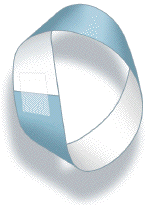Home > Archive > 2009 > July > 8
The Java Wars, continued
Wednesday, July 08, 2009 by Dave Winer.
1. Google has been hiring engineers away from Microsoft for years. There was a time when I'd get an email every day from someone I had worked with at Microsoft saying "I'm at Google now." ![]()
2. Their CEO, Eric Schmidt, is a veteran of the Java Wars, when he was an exec at Sun Microsystems. So it's no surprise that Schmidt has navigated Google back into position with Microsoft in the ongoing battle of the titans in tech. ![]()
 Today's Google thinks in terms of industry warfare, and when they look for an adversary to fight, they see Microsoft, looming large.
Today's Google thinks in terms of industry warfare, and when they look for an adversary to fight, they see Microsoft, looming large. ![]()
The only problem with all this war is that it has nothing to do with what computers are used for, or any relevance to the people who use them. All these wars do is simplify the world for the execs and the press, and make it seem like the warring parties and their wars are all that matter. After a while something new comes along from someone new, and the two warring parties are left to dook it out while the attention shifts to the shiny new stuff. ![]()
 So yesterday Google announced The Chrome OS, which is hailed by the industry press as a surprise middle-of-the-night attack against their arch-rival, Microsoft. But did any of the reporters take a quiet moment to reflect on the basic question: What Just Happened? If they had, they would have been hard-pressed to find anything actually had happened, other than a press release.
So yesterday Google announced The Chrome OS, which is hailed by the industry press as a surprise middle-of-the-night attack against their arch-rival, Microsoft. But did any of the reporters take a quiet moment to reflect on the basic question: What Just Happened? If they had, they would have been hard-pressed to find anything actually had happened, other than a press release. ![]()
Let's be dispassionate. Before yesterday's announcement: 1. Chrome ran on Linux. 2. Linux was an operating system. 3. Linux ran on netbooks. ![]()
However, most people want XP on their netbook, not Linux. That was true yesterday and it's still true today. ![]()
I'm one of the users who prefers XP. I have two identitcal netbooks, one runs Linux and the other runs XP. I travel with the one that runs XP because it runs my software. And that's the hurdle Linux has, whether or not Google calls it Chrome. Normal people, given a choice, want XP. It's also Microsoft's problem because people aren't wanting Vista or Windows 7 either. ![]()
I predict Google will hit the same wall Microsoft has hit. Getting a bunch of pundits happy about the drama of warfare isn't going to make a difference in the user base. It'll just put off the day that both companies deal with the issue -- how to create anything in the OS area that interests people enough to buy something new. Google doesn't have it. Chrome is popular for sure, esp for a browser that's less than a year old. But it runs on XP. Microsoft surely doesn't have it. And I don't think Apple has it either. ![]()
 Back in user-land, on Planet Earth, I still can't use Chrome because it doesn't synch bookmarks the way Firefox with XMarks does. A much more meaningful announcement, imho, would be that Chrome now runs XMarks and can synch with Firefox. Ironically that would hurt Microsoft much more than any of the michegas they're doing, unless they have a browser that can hook into this network too. Bookmark synchronization is one of the very few new things that users actually want, so what is the tech industry doing about it? Nothing. Of course.
Back in user-land, on Planet Earth, I still can't use Chrome because it doesn't synch bookmarks the way Firefox with XMarks does. A much more meaningful announcement, imho, would be that Chrome now runs XMarks and can synch with Firefox. Ironically that would hurt Microsoft much more than any of the michegas they're doing, unless they have a browser that can hook into this network too. Bookmark synchronization is one of the very few new things that users actually want, so what is the tech industry doing about it? Nothing. Of course. ![]()
![]()
PS: I just noticed that XMarks, which was formerly FoxMarks, now has new positioning: "Bookmark-powered web discovery." Ugh. I suspect that's a phrase chosen to make investors happy. To me, I use XMarks as a way to synch bookmarks between the computers I use. I hope they're not going to stray too far from that. ![]()
Recent stories
 Dave Winer, 54, pioneered the development of weblogs, syndication (RSS), podcasting, outlining, and web content management software; former contributing editor at Wired Magazine, research fellow at Harvard Law School, entrepreneur, and investor in web media companies. A native New Yorker, he received a Master's in Computer Science from the University of Wisconsin, a Bachelor's in Mathematics from Tulane University and currently lives in Berkeley, California.
Dave Winer, 54, pioneered the development of weblogs, syndication (RSS), podcasting, outlining, and web content management software; former contributing editor at Wired Magazine, research fellow at Harvard Law School, entrepreneur, and investor in web media companies. A native New Yorker, he received a Master's in Computer Science from the University of Wisconsin, a Bachelor's in Mathematics from Tulane University and currently lives in Berkeley, California.
"The protoblogger." - NY Times.
"The father of modern-day content distribution." - PC World.
One of BusinessWeek's 25 Most Influential People on the Web.
"Helped popularize blogging, podcasting and RSS." - Time.
"The father of blogging and RSS." - BBC.
"RSS was born in 1997 out of the confluence of Dave Winer's 'Really Simple Syndication' technology, used to push out blog updates, and Netscape's 'Rich Site Summary', which allowed users to create custom Netscape home pages with regularly updated data flows." - Tim O'Reilly.
Dave Winer
© Copyright 1994-2009 Dave Winer
Last update: 7/8/2009; 6:48:21 PM Pacific. "It's even worse than it appears."